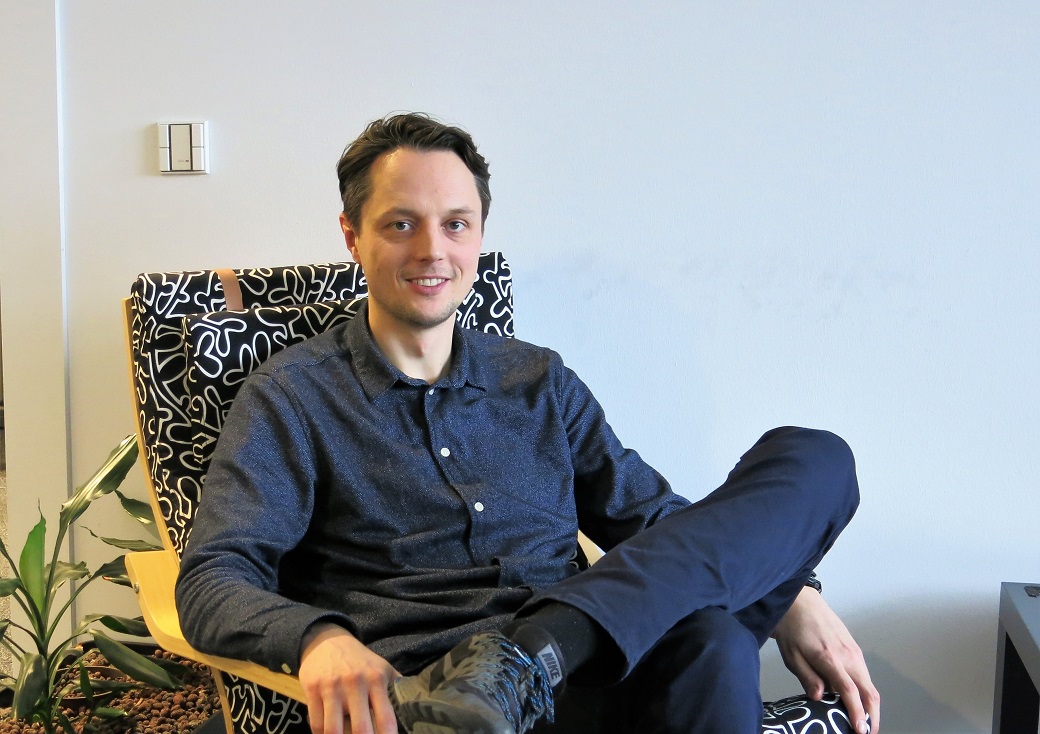Becoming the father of twins and starting a PhD in the same year is no small feat. But Kars Alfrink embraces the challenge and can’t imagine his life any other way.
Kars Alfrink: "I wanted to do something related to this question of how machine learning and data science impact interaction design.” (Photo: Heather Montague)
“I graduated from Utrecht School of the Arts where I studied interaction design. I worked for a couple of internet agencies and then around 2007 I started freelancing in gaming, and that developed into setting up my own boutique agency. There I did a lot of games and projects around things like social issues, culture change and those sorts of things.
I did that for about five years and then, a couple of years ago, my business partner and I decided to shut down the studio, mainly because we felt it had served its purpose. We had done what we set out to do.
Around that time my wife and I had the opportunity to spend some time in Singapore so we went over there. I worked with some start-ups and got really interested in machine learning and data science, and the impact that field was having on interaction design and the design of digital products. Then I started thinking about the next challenge I would pursue. I wanted to do something related to this question of how machine learning and data science impact interaction design. Pretty soon it became clear for me that returning to academia was the right thing and I started my PhD in September.
‘I can bring a lot of practical examples when we’re talking about theory’
It’s a big shift to go from industry to academia. It’s been good and I’ve been very happy and comfortable here since day one. It’s definitely a different environment. The pace is obviously very different from working in a business or start-up environment. But the biggest challenge for me is figuring out when something is good or not. The criteria as a designer are completely different from an industry context, of knowing if the thing I’m making is actually any good. That’s the main learning curve that I find here so far. How to do research as a designer, that is an interesting puzzle. The only way to solve it is to just do it. And when I’m teaching, I think I bring an outside perspective. I can bring a lot of practical examples when we’re talking about theory, contextualising it. I find that that can be very helpful for students.
In addition, I became the father of twins last year in May so a lot has changed. I can’t imagine what it must be like being a dad of twins and being an independent contractor. In some ways, I’m pretty sure it would be much more stressful than what I’m doing now. The pace is different, financial insecurities are very different as well. Obviously, the pay check you can earn in industry is dramatically different, but I’m lucky enough to have a partner who is also gainfully employed. That made it possible for me to do this in the first place so I consider myself super lucky in that regard.
Since the twins are our first kids, we can’t really compare what others experience when they have kids. You have no choice, you just have to do it. It’s challenging, for sure, but it’s also super rewarding. All the clichés in that regard are totally true. I was lucky enough to spend the first four months with them at home, taking care of them together with my wife. It was a very special time to spend together. Doing a PhD, it’s easy to lose sight of what’s truly important in life but the twins definitely help to keep me grounded.”
Want to be featured in Humans of TU Delft? Or do you know someone with a good story to tell? Send us an e-mail at humansoftudelft@gmail.com.
Heather Montague / Freelance writer



Comments are closed.